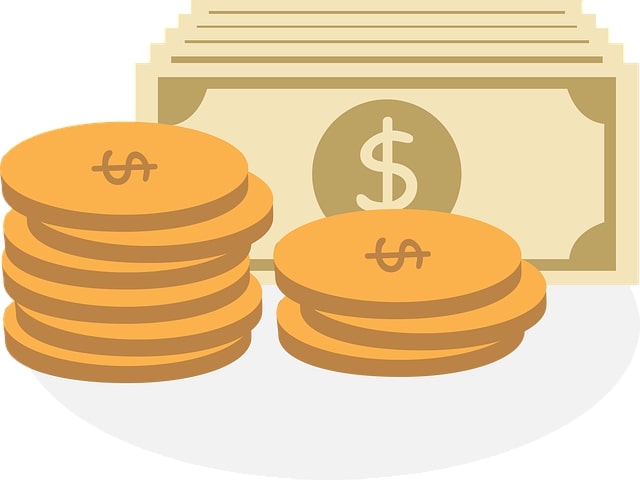Shopify Pricing Plan – How much Does Shopify Cost?
Last Updated | June 9, 2024
Table of Contents
What Does Shopify Cost?

Shopify is an online eCommerce platform where anyone can set up their online store and conduct business through it. Though, Shopify price is not free, and it does charge an amount for providing the services, features, tools, and other resources that the business owner may need in order to succeed.
Read Also What Is Shopify Website Builder Cost
This cost of Shopify depends on the kind of business store you want to own online, and Shopify costs offer you three exclusive Shopify pricing plans based on your needs. In addition, Shopify also gives its users a fourteen-day free trial, so that they can use it and get the hang of it before starting to pay for it.
-
Shopify Pricing Plans Explained
As mentioned earlier, Shopify plans pricing according to the needs of its users, and that is why it has three different pricing plans that are competitive and offer different features so that the most suitable option is picked by the users according to their business budgets and online store development needs.
Read Also Shopify Plus vs Shopify Advanced
How Much Does Shopify Cost Per Month by Plan?
The Shopify price plans are as follows:
- Basic Shopify:
The Basic Shopify plan provides all the basic tools, features and requirements of an online store, for example, the actual online store, an unlimited product range, customer help and technical Shopify Customer support, multiple sales channels, etc. which are the basic needs of an online store.
Read Also Shopify Singapore Pricing
This plan costs a very minimum Shopify price of $29.00 per month, though; it has its own pros and cons, and provides a little less than other, more expensive plans.
- Shopify Plan:
The Shopify plan has all the tools and features provided by the Basic Shopify plan already discussed and adds some more features, as well as increases in its pricing. The Shopify Plan costs $79.00 per month and is mostly suited to online businesses that are in the growing stages.
- Advanced Shopify:
This Advanced Shopify plan attracts online business owners who are looking for opportunities to scale their business and have high expectations to reach the top. This Shopify price plan is a little expensive, as it charges $299.00 per month, but it is worth it.
Read Also Shopify Pricing South Africa
This Shopify pricing includes a larger amount of shipping discounts, multiple store location and warehouse updating options, greater fraud analysis and insurance, and sales in multiple different languages (up to 5) is available.
- Basic Shopify
Basic Shopify is a Shopify pricing plan that works best for beginners, or those who are starting a new venture online, because it only costs $29.00 a month, and offers the basic requirements of features and tools that an online business would need in order to start running.
Read Also How Much Does it Cost to Hire a Shopify Expert
These tools and features offered by this Shopify pricing plan include: an online store that consists of an eCommerce website development and a blog, you can upload unlimited products on it, there is 24/7 customer support or maintenance available for help, offers a wide range of online marketplaces, and social media sales channels like Facebook or Instagram, has a free SSL certificate along too, and gives an option of discount codes and gift cards to be used as well.
- Limitations of Shopify Basic
However, there are many limitations attached to the Basic Shopify pricing plan. These limitations include the fact that only 2 staff accounts can be created and given access to POS and admin rights. Also, only 4 different warehouses or retail stores’ information can be added under this plan.
Read Also Shopify Plan Comparison
There is also a visible lack of professional reporting available under this plan, and a lower percentage of shipping discounts is offered, with a 2% extra charge on using payment gateway providers that do not fall under Shopify payments. No multilingual selling is offered, and neither does it let foreign exchange be handled manually, so it works on a fixed exchange rate system which causes a loss at certain times.
- The Shopify Plan
The Shopify Plan is a step ahead of the Basic Shopify in the series of Shopify pricing plans. That is why Shopify price increases here, and this plan costs $79.00 per month. This certain Shopify cost price and plan offer all of the features and tools that the Shopify Basic pricing plan also offers, in addition to some more additional benefits and offerings as discussed below.
Read Also “How to change prices on Shopify in bulk“
-
Pros and Cons of The Shopify Plan
| Pros | Cons |
| – It lets 5 staff accounts handle the Shopify POS and Shopify admin activities. | – Online and in-person credit card rates are still high, (2.6% and 2.5% respectively.) |
| – A shipping discount of about 72% is offered. | – There is no advanced builder of reports available to users under this Shopify pricing plan. |
| – Professional reporting is also introduced, where the business will get reports about all the sales, purchases, orders and deliveries conducted. | – No shipping rate calculations are provided by any third-party; only the one with your own account is visible. |
| – Priority Mail is part of this plan, where the USPS Priority Mail Cubic pricing is included. | – Number of locations, languages offered and staff accounts can be increased if a better Shopify cost price is paid. |
| – Only a 1% extra additional fee is charged on using non-Shopify payment providers. | – For extra store management tools and features, there is a fee of $89.00 additional charges per month. |
| – International Shopify SEO optimization can be set, along with selling possible in 2 different languages and even setting of a manual foreign exchange rate is offered. |
-
Advantages of the Shopify Plan over Basic Shopify
There are many advantages of the Shopify Plan over the Basic Shopify packages, because it is a step ahead, and mostly targets businesses that are in the growth stage and want to develop Shopify website further.
Read Also How Much Does it Cost to Hire a Shopify Expert
The first advantage that the Shopify Plan users get over the Basic Shopify ones is that the number of staff accounts in the Shopify Plan is increased to 5, so now, 5 workers can access the Shopify Point of Sale (POS) and the Shopify admin activities, as opposed to only 2 accounts that the Basic Shopify plan offered previously.
Read also Shopify Pricing Plan – How much Does Shopify Cost?
Even the number of warehouse and retail store locations is increased to 5 locations in the Shopify Plan, rather than the limit of 4 locations that the Shopify Basic plan included.
The Shipping discount in the Shopify Plan is 72%, which is also more than the 64% discount offered in the Basic Shopify plan, which means that shipping charges and costs for Shopify Plan users would be much less than those using the Basic Shopify pricing plan.
As shown above, Shopify Plan users only have to pay a 1% additional for using non-Shopify payment providers, whereas Basic Shopify plan users have to pay 2% on all orders.
Priority mailing through any resource is not a part of the Basic Shopify Plan, though the Shopify Plan users are offered this feature through the USPS Priority Mail Cubic pricing also included in the pricing of the plan itself.
Manual foreign exchange rates, selling in up to 2 different languages and even the chance to optimize international SEO opportunities are only provided to Shopify Plan users, and the Basic Shopify users are neglected of all these features.
- Shopify Advanced Plan
Advanced Shopify Plan is a more expensive plan, costing around $299.00 per month, and that is because it is specifically designed for businesses that are on the lookout for scaling their business, and need the advanced tools and features that this plan is offering.
The Advanced Shopify Plan offers all the tools and features that the other two plans, Basic Shopify and the Shopify Plan both are offering, along with some more advanced and next generation features, which take the businesses to the next level. Also, it mostly caters to those businesses that are earning a higher degree of profits, so that the users can easily afford this plan within their budget.
- Pros and Cons of the Shopify Advanced Plan
| Pros | Cons |
| – It allows the online store to have up to 8 staff accounts for handling the Shopify POS and Shopify admin activities. | – The price is very high, $299.00 and not everyone can afford such a budget for an online store. |
| – An advanced report building feature is available, where multiple kinds of reporting can easily happen. | – For extra store management tools and features, there is a fee of $89.00 additional charges per month. |
| – Shows calculated rates for your own online store, as well as third party shipping rates for better offers and discounts. | |
| – Shipping discount of about 74% is offered. | |
| – Online credit card rates are the same as in-person credit card rates. | |
| – The USPS Priority Mail Cubic pricing is included in the plan already, so the priority mail feature is available. | |
| – Only a 0.5% extra additional fee is charged on using non-Shopify payment providers. | |
| – International SEO optimization can be set, along with selling possible in 5 different languages and even setting of a manual foreign exchange rate is offered. |
-
Advantages of the Advanced Shopify Plan over Shopify Plan
The Advanced Shopify Plan is a much more advanced version of the Shopify eCommerce platform, and thus, has many advantages over the Shopify Plan, as it targets the businesses looking for scaling of their profits, and higher profit margins overall.
The number of staff accounts in the Shopify Plan is 5, but the Advanced Shopify Plan increases that to 15, which means that 15 staff members can access the Shopify Point of Sale (POS) and the Shopify admin activities. This is an increase of a total of 10 workers, making it easier to manage and handle as more staff can work on it now at the same time.
The number of warehouse and retail store locations is also increased to 8 in the Advanced Shopify Plan, so more retail stores and warehouses can be kept tabs on for orders and business, getting more gains in for the business.
Read Also How to Cancel a Shopify plan
This Advanced Shopify Plan also includes extra features such as the advanced reporting system, reporting builder, shipping rates calculated by the store as well as third party input, and extra checkout features that none of the previous plans offer.
The Shipping discount in the Advanced Shopify Plan is 74%, which is more than the 72% of the Shopify Plan, meaning that getting or sending business material, items, supplies, etc. will cost the Advanced Shopify Plan users cheaper than the other plans.
As shown above, Shopify Plan users have to pay a 1% additional for using non-Shopify payment providers, whereas these Advanced Shopify Plan users only have to pay 0.5% on all orders.
Selling in up to 5 different languages is also possible by the Advanced Shopify Plan users, whereas the Shopify Plan users could only do it in 2 languages, making it more widely accepted throughout the globe.
Read More: If I Close My Shopify Store Will I Still Be Charged
- Shopify Lite Plan
Shopify Lite is a separate plan (apart from the standard 3 plans that Shopify offers) and belongs to a different Shopify website price, that is, it only costs $9.00 per month. According to this price range, we can identify that this plan is for beginners and to attract people who want to switch their platforms but do not want to fully invest in a complete Shopify plan.
This Shopify Lite Plan also caters to those people who do not actually want to own a whole online store; rather, they can use their own blog or website to sell products by just adding the “buy buttons”. In addition, if a user wants to physically sell their products in different small or medium markets, they can also use the Shopify Lite Plan, not for the buy buttons, but for the Shopify Point of Sale (POS) feature or credit card readers and receipts.
The Shopify Lite Plan has more or less all the standard features that are included in the Shopify POS and Buy Button options, as well as access to sales channels, the overall activity dashboard, and the financial reporting procedure conducted through Shopify.
Thus, this Shopify pricing Plan – Shopify Lite – can be used by mobile users, who want to move from place to place to sell their products or users that only want certain features of Shopify for their own personal website, and do not want to become a host of this platform completely.
-
Pros and Cons of The Shopify Lite Plan
| Pros | Cons |
| – This plan is highly budget friendly and very light on the pocket, costing only $9.00 per month. | – It does not allow you to build a complete online store on the Shopify platform. |
| – Gives you an option to work with Shopify features even if you do not want to own an online store completely. | – It can get a little complicated if you want to integrate some features with your own personal website. |
| – Includes all the standard features that other plans also do within the POS, sales channels, financial reporting and credit card reading options. | – It does not have all the features of the Shopify plans, rather, only caters to certain areas of the platform, so your work needs to be highly specific to those areas. |
| – Works in both cases, whether you want to sell online through “buy buttons” or in-person through POS and credit card readers. | |
| – Customer and technical support is available through email and live chat to users 24/7. |
-
Advantages of the Shopify Lite Plan over the Advanced Shopify Plan
The Advanced Shopify Plan and the Shopify Lite Plan belong to two very different categories of Shopify pricing plans, and cannot really be compared to each other. This is because, not only is their price range very different, even their background purpose is very different, and they cater to very different kinds of customer pools that cannot be interlinked.
If compared to each other, the Advanced Shopify Plan is much more adverse, advanced and expensive than the Shopify Lite Plan, as the Shopify Lite pricing plan only costs $9.00 and the Advanced Shopify pricing plan costs $299.00.
Shopify Lite is only aimed towards people who want to use certain features of the Shopify eCommerce platform for their personal benefit and do not want to make a whole online store, whereas the Advanced Shopify Plan is for companies and businesses who are flourishing online and want to upscale their profits to the next level.
Shopify Lite has all the features regarding POS, sales channels, credit card usage, and putting up buy buttons that the Advanced Shopify Plan also has, so there is no difference there.
The Shopify Lite plan can also be used for a temporary period of time, and as per the need of the user. Though, the Advanced Shopify Plan is more of a long-term investment, and the deal there is between big businesses and the online platform.
Shopify Lite does not only cater to buy buttons and online selling like the Advanced Shopify Plan, rather, it goes a step further and helps people in selling their products in person, too.
- Shopify Plus Plan
Shopify Plus Plan is by far one of the most expensive plans on the Shopify platform, and with good reason, as it is specifically Shopify website design for large and flourishing businesses in the market, who want to either expand further or want to shift onto Shopify from other platforms. In both cases, a fee of $2,000 or more, depending on the size and the complexity of the business is charged.
The tools and features that this plan offers are more vast and much broader than those that other Shopify pricing plans offer, and a lot of additional benefits are also attached to this Shopify cost price plan, as further discussed below.
- Pros and Cons of The Shopify Plus Plan
| Pros | Cons |
| – No on premise costs, so no need to spend extra money or hire extra staff, giving operational benefits to the business owner. | – The Shopify Plus Plan cost price is very high, and may not be appropriate in the value-for-money concept. |
| – It only takes about three to four months for your business to start selling and gaging in profits with the Shopify Plus Plan. | – It replaces part of the custom design Shopify apps that you were previously using, and may not be able to replace all. |
| – With the Shop Pay feature, you can get an 18% higher conversion rate. | – If you choose to build more than 9 stores online, an additional fee of $250 per month per store will be charged. |
| – It also offers a 60% faster checkout rate. | – Credit Card rates vary from country to country and are not fixed, which may cause some updates and pricing discrepancies. |
| – AR, video and 3D features also available for product media purposes. | – If you need extra consultation, extra charges for a Shopify Plus partner will be added to your monthly fee, which is already so high. |
| – The Shopify Plus Plan offers a 99.99% uptime rate throughout. | |
| – From one location, the business owner can now take care of all other operations too, such as: managing stores, staff accounts, products, orders, workflows, inventory management, and discounts. | |
| – Taxes are reduced, and Avalara if present for up-to-date calculations and payments. | |
| – Easy Shopify migration provided from other platforms to the Shopify platform, along with a rapid Shopify integration service. |
-
Advantages of the Shopify Plus Plan over the Shopify Lite Plan
The Shopify Plus Plan and the Shopify Lite Plan, both target different kinds of audiences. The Shopify Plus plan is an on-premise plan, but the Shopify Lite Plan only allows certain selected features and tools to be used.
The Shopify Plus Plan provides a 60% faster checkout rate than the Shopify Lite Plan and also gives and 18% higher sales conversion rate than any other plan.
In the Shopify Plus Plan, the business owners can upload products with 3D animations, videos and AR features, whereas the Shopify Lite Plan users can only add “buy buttons” to their already running websites, and cannot add extra animated features to them.
Where the Shopify Lite users need to add buy buttons or have POS points and checkout counters in other places, Shopify Plus Plan users can easily migrate from other platforms and get better features and more updated models of work.
Shopify is not the only eCommerce software platform of its kind, and many other alternatives are also present in the market. Some of the more famous ones include:
- Volusion
- Ecwid
- Wix
- BigCommerce
- Magento
- 3dcart
- WooCommerce
- LemonStand
- BigCartel
- Squarespace
Many other kinds of eCommerce platforms also exist, that work in the same way that Shopify does, but they are not as big or competitive as the ones listed above.
The pricing plans of Volusion are very similar to those for Shopify, and include:
- The Personal Plan costs $29 per month.
- The Professional Plan costs $79 per month
- The Business Plan costs $299 per month
- The Prime Plan is based on the GMV per year.
Thus we can see how similar in pricing all the plans of Volusion are when compared to Shopify, though one difference does exist: the costs prices of all Volusion plans can reduce by 10% if the payment for those plans is prepaid, that is, it is already paid for at the beginning.
On the other hand, Volusion users have to pay extra in case they exceed the allowed sales volume cap, which can prove to be quite expensive by the end of each month.
The Ecwid platform has four different pricing plans, and they start from much less than what the Shopify pricing plans offer.
The Ecwid pricing plans are as follows:
- The Free Plan, which means that there is zero cost required to set up an online store with Ecwid, but you will not get any additional features, only the online store.
- The Venture Plan pertains to new and smaller companies and charges only $15 to start an online store and has access to a few primary features.
- The Business Plan costs $35, and has access to even more features than the Venture Plan.
- The Unlimited Plan costs $99, and provides all the necessary features and some extra tools too, in order to set up a great online store and become successful, not only online but on mobile and in retail too.
So, as we can see, the Ecwid pricing plans are much cheaper than Shopify pricing plans overall.
Wix is another of Shopify’s direct competitors, and also, just like Ecwid, has cheaper pricing plans as compared to Shopify. Details of the Wix pricing plans are as follows.
- The Connect Domain Plan costs $4.50 per month, and is the most basic one, where you set up a domain and show Wix ads on different platforms to attract users.
- The Combo Plan is more for personal use by the business owner, costing $8.50, and gives more bandwidth, more storage, and a free 1-year domain in comparison to the Connect Domain Plan.
- The Unlimited Plan is a pricing plan that fits entrepreneurs and freelancers, with unlimited bandwidth, even more storage, removal of ads, and a 1 hour video possibility too. Costing $12.50, this plan offers many additional features and apps too.
- The VIP Plan is for bigger companies and is aimed towards successfully running businesses who want to increase their storage, add more tools and features to their website and get priority support from Wix. It costs $24.50.
- Final Thoughts: Is Shopify a Good eCommerce Platform by Pricing?
According to the alternative competitors listed above, and after looking at what different pricing plans they have to offer, Shopify does not look good on paper and seems to be overcharging for what they are offering. Many users may feel they are not getting the value for money from Shopify that they may be getting from elsewhere.
Though, Shopify is still a leading eCommerce platform, that is used by many across the globe, so changing those dynamics is also not possible, because some business owners are not looking for how much the website costs, rather, how much conversion rate they may be getting, and how successful a certain eCommerce platform is, and that is where Shopify takes the cup.
- Next Steps: Getting Started with Shopify
Starting with Shopify straight away by subscribing to one of the Shopify pricing plans may lead to under satisfaction of the clients, which is the main reason that Shopify prompts its new users to first try out their 14-day trial version, and then go on to paying for what they think fits their budget and the nature of the business.
Once the user has used the trial period and chosen their desired pricing plan, they can go on to setting up their online store and staying within the capacities and limitations of their chosen plan, they can make their online store very attractive and exactly what their consumers would want.
Once the website is up and running, the users can gauge their audience by providing sales, discounts, vouchers, and any other possible motivational activity that would bring in customers. Moreover, they can also use the available analytics to see which product is selling the best, what area has posted most of the orders, and where the business is going wrong, in order to correct their mistakes.
FAQs
How much does a Shopify plan cost?
Shopify offers various plans tailored to different business needs. The Basic Shopify plan starts at $29 per month, the Shopify plan is $79 per month, and the Advanced Shopify plan is $299 per month. Prices may vary based on additional features or services.
How much are Shopify fees per purchase?
For online credit card rates, Shopify charges 2.9% + 30¢ for the Basic Shopify plan, 2.6% + 30¢ for the Shopify plan, and 2.4% + 30¢ for the Advanced Shopify plan per transaction. Additional fees apply if you use payment providers other than Shopify Payments.
Is Shopify $1 dollar for 3 months?
Shopify occasionally offers promotional pricing or trials at reduced rates, such as $1 for 3 months, but these offers are time-limited and subject to change. Always check Shopify’s official website or contact their support for the latest deals and promotions.
How much does Shopify design cost?
The cost of Shopify design can vary widely based on your requirements. If you use free themes, there’s no cost involved. However, premium themes typically range from $140 to $180 as a one-time purchase. For custom design services, costs can start from a few hundred to several thousand dollars, depending on the complexity of the design and the expertise of the designer.
Is Shopify $1 a month?
Shopify does not offer a standard plan at $1 per month. Any promotional offer allowing access to Shopify services at $1 per month would be exceptional and temporary. Again, checking the official Shopify website or reaching out to their support team would provide the most accurate and current information.











